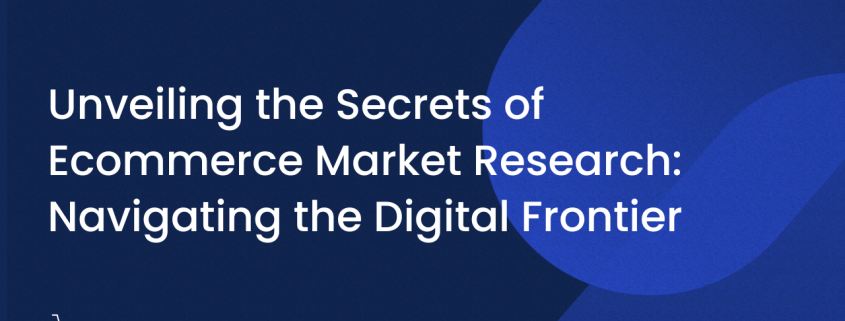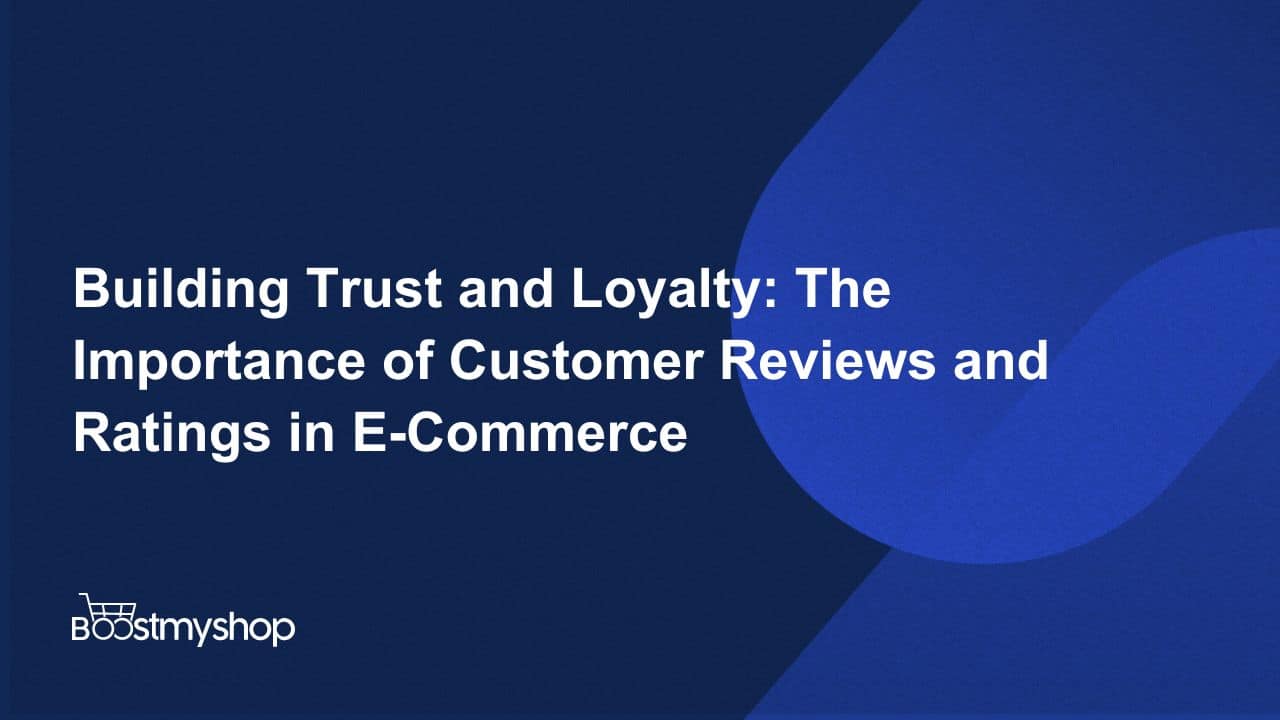Unveiling the Secrets of Ecommerce Market Research: Navigating the Digital Frontier
Introduction: The Quest for Success in the Digital Era
In the era of the internet and digital innovation, ecommerce has emerged as a thriving industry that continues to shape the way we do business. The convenience and accessibility offered by online shopping have attracted both consumers and entrepreneurs, resulting in an increasingly competitive landscape. To stand out in this bustling market, businesses must employ effective strategies, and one such strategy is ecommerce market research.
Ecommerce market research equips businesses with the insights needed to make informed decisions, understand consumer behaviour, and identify emerging trends. By leveraging data-driven research, businesses can optimize their marketing efforts, enhance customer experiences, and achieve sustainable growth. In this article, we delve into the world of ecommerce market research, exploring its intricacies and unveiling the secrets to success in the digital frontier.
Understanding the Importance of Ecommerce Market Research
Ecommerce market research is the process of gathering and analyzing data to gain a comprehensive understanding of the digital market landscape. This research provides valuable insights into consumer preferences, purchasing patterns, competitor analysis, and market trends. Here’s why ecommerce market research is crucial for businesses:
1. Identifying Target Audience: Market research enables businesses to define their target audience accurately. By understanding the demographics, preferences, and needs of their potential customers, businesses can tailor their marketing strategies and offerings to meet their specific requirements.
2. Competitor Analysis: Ecommerce market research allows businesses to study their competitors and identify their strengths, weaknesses, and unique selling propositions. This analysis helps in identifying gaps in the market and formulating strategies to gain a competitive edge.
3. Trend Identification: Keeping up with the ever-changing market trends is essential for ecommerce success. Market research provides businesses with the knowledge to identify emerging trends, allowing them to adapt their offerings accordingly and stay ahead of the competition.
4. Optimizing Marketing Strategies: With ecommerce market research, businesses can optimize their marketing efforts by identifying the most effective channels, messaging, and promotional activities to engage their target audience. This data-driven approach helps in maximizing return on investment (ROI) and minimizing wasteful spending.
5. Enhancing Customer Experience: Understanding customer preferences, pain points, and expectations is crucial for delivering a seamless and personalized customer experience. Ecommerce market research helps businesses gain insights into customer behaviour, enabling them to improve their products, services, and overall customer satisfaction.
Exploring Effective Ecommerce Market Research Techniques
To unleash the power of ecommerce market research, businesses need to employ effective techniques and tools. Let’s dive into some proven strategies that can help you navigate the digital landscape with confidence:
1. Customer Surveys: Unlocking Valuable Insights
Customer surveys are a powerful tool to gather direct feedback from your target audience. By designing comprehensive surveys, you can uncover valuable insights about consumer preferences, shopping habits, and satisfaction levels. Consider using platforms like SurveyMonkey or Google Forms to create and distribute surveys. Be sure to ask relevant questions, provide multiple-choice options, and incentivize participation to maximize response rates.
2. Social Media Listening: Tapping into the Digital Conversations
Social media platforms have become hubs of digital conversations where consumers express their opinions, preferences, and experiences. By actively listening to these conversations, businesses can gain valuable insights into customer sentiments, emerging trends, and potential pain points. Utilize social media monitoring tools like Hootsuite or Mention to track brand mentions, keywords, and industry-related discussions. Analyze the data collected to identify patterns and opportunities for improvement.
3. Competitor Analysis: Learning from the Leaders
Analyzing the strategies and tactics of successful competitors can provide valuable insights for your own business. Identify the key players in your industry and study their online presence, marketing campaigns, and customer engagement strategies. Identify what sets them apart and learn from their successes and failures. This knowledge will help you refine your own strategies and identify untapped opportunities.
4. Web Analytics: Unveiling User Behavior
Web analytics tools like Google Analytics offer a wealth of data about user behaviour on your website. By analyzing metrics such as bounce rates, page views, and conversion rates, you can gain valuable insights into how users navigate your site, which pages attract the most attention, and where visitors drop off in the conversion funnel. This data can guide website optimization efforts, improve user experience, and drive higher conversion rates.
5. Keyword Research: Optimizing for Search Engines
Keyword research is essential for optimizing your online presence and improving search engine rankings. Tools like Google Keyword Planner or SEMrush can help you identify relevant keywords and phrases that align with your business offerings. By incorporating these keywords strategically into your website content, product descriptions, and blog posts, you can enhance your visibility in search engine results and attract qualified organic traffic.
6. A/B Testing: Experimenting for Optimization
A/B testing involves comparing two versions of a webpage or marketing campaign to determine which one performs better. By creating variations and splitting your audience, you can test different elements such as headlines, calls to action, or pricing strategies to identify the most effective approach. A/B testing allows you to make data-driven decisions and continuously optimize your ecommerce strategies for better results.
FAQs: Answering Your Ecommerce Market Research Questions
How long does ecommerce market research take?
The duration of ecommerce market research can vary depending on the scope and complexity of the research objectives. It may take anywhere from a few weeks to several months to gather and analyze the data effectively.
Can small businesses benefit from ecommerce market research?
Absolutely! Ecommerce market research is valuable for businesses of all sizes. Small businesses can gain insights into their target audience, optimize marketing efforts, and identify opportunities for growth by conducting effective market research.
Is it necessary to hire a market research agency for ecommerce research?
While hiring a market research agency can provide expertise and resources, it is not always necessary. Many market research techniques be conducted in-house with the right tools and methodologies. However, larger-scale research projects or specialized analyses may benefit from professional assistance.
Conclusion: Unleash the Power of Ecommerce Market Research
In the fast-paced world of ecommerce, understanding the market is an indispensable tool for success. By investing time and effort into understanding your target audience, tracking industry trends, and analyzing competitor strategies, you can gain a competitive edge and drive sustainable growth. Market research empowers businesses to make data-driven decisions, optimize marketing efforts, and deliver exceptional customer experiences.
Embrace the power of ecommerce market research and unlock the potential of the digital frontier. By leveraging these effective strategies and tools, you can navigate the ever-evolving ecommerce landscape with confidence,
making informed decisions that propel your business towards success.






